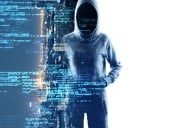You have /5 articles left.
Sign up for a free account or log in.
The meetings of the Secretary of Education's Commission on the Future of Higher Education tend to make one's head hurt.
That's not a commentary on the quality of the ideas expressed (which, as for any committee of its type, run the gamut) but of their volume. With 20 commissioners and panel after panel of guest speakers offering their own views and recommendations and pet concerns, it sometimes seems as if the commission could spread itself too thin, or collapse under its own weight, by taking on too many issues in a scattershot way.
On Friday, Charles B. Reed, the California State University chancellor known more for his blunt style than for eloquence, captured that dilemma in a way that managed to be at once eloquent and blunt. In a prelude to his formal presentation, which was about the university's efforts to reach out to and work with its many constituencies, Reed said he welcomed the commission's examination and implored the panel's members to maximize their impact by narrowing their focus.
College and university leaders "don't spend nearly enough time thinking about the future of higher education," he said, and as a result, "we in higher education tend to have a lot of little ideas. What we need," Reed said, "are some big ideas." He urged the commission's members focus their intellectual energy and political capital on "only three or four big ideas" that could truly transform higher education. "We have high expectations for you," he added.
That idea -- of shunning the scattershot approach for a handful of well-aimed cannonballs -- seemed to resonate with the commission's members, and with just about every person who spoke after Reed did on the second day of a two-day meeting focused on "innovation" in higher education. But perhaps reflecting the challenge confronting the panel, nearly every witness who followed Reed suggested that his or her idea was just the sort of "big idea" that the Cal State chancellor advocated. After all, who admits to having little ideas?
Reed himself focused on the need for colleges and universities, particularly big public ones like his, to build partnerships in multiple directions: with schools, churches and other institutions in minority and immigrant communities, to better prepare the legions of "underserved students" who are beginning to pour into higher education; and with businesses, to ensure that the students the universities turn out as teachers, medical technicians and agricultural engineers have the technical, language and interpersonal skills the employers are looking for.
Reed detailed Cal State's many efforts along these lines and urged the commission to press the federal government to provide incentives to encourage more colleges to do the same.
Other panelists Friday characterized the open source movement sweeping the technology world as a "big idea" that could transform higher education. Dan Magnanti, dean of engineering at the Massachusetts Institute of Technology, suggested that the institution's OpenCourseWare initiative, which makes the vast majority of course materials available to anyone with a computer, could be a way to "leverage what's happening on college campuses" to improve the teaching of scientific and other disciplines in high schools, in line with the Bush administration's new American Competitiveness Initiative.
Joel M. Smith, vice provost and chief information officer at Carnegie Mellon University, appeared with Magnanti and David Wiley, an assistant professor at the Center for Open and Sustainable Learning at Utah State University, on a panel about innovative teaching and learning strategies. He argued that electronic methods of delivering education can improve teaching and learning, but only if current e-learning methods are changed to make better use of teaching and learning techniques that have been proven effective by cognitive scientists.
"We make shockingly little use of what is in fact the best information available to improve education: scientific results from research studies in the learning sciences," said Smith, who offered Carnegie Mellon's Open Learning Initiative, sponsored by the William and Flora Hewlett Foundation, as an example of online instruction that can and has been proven, through scientific study, to work.
In his testimony, Wiley argued that higher education has largely failed to respond and adapt to a set of changes that technology has wrought on society, which he characterized in the table below:
| Analog/Print | Digital | Voice over IP (VOIP), e-books, digital newspapers (New York Times, Washington Post) |
| Closed | Open | Open source software, open access weather and astronomical data, Public Library of Science journals |
| Tethered | Mobile | Batteries in laptops, cell phones, wireless internet access |
| Isolated | Connected | Email, instant messaging, hypertext, web services, and other systems interconnect people, content, and computers |
| Generic | Personal | Customized interiors for cars; skins and ring tones for cell phones; hard drives, RAM, and video components in computers |
| Consumption | Participation | Blogs, podcasting, and video podcasting let ordinary people report news, produce internet radio shows, and distribute their own movie |
Source: David Wiley
Utah State has joined MIT and institutions like Rice University in making their course content freely available, and such openness, Wiley argued, is "one of the great innovations of the last several decades" (there's that "big idea" thing again).
But more Chinese universities than American ones have gone this route, he said, raising the prospect that the United States will fall behind if it does not get with the program.
He closed his presentation to the commission with a quote from W. Edwards Deming, in the form of an ironic warning: "It's not necessary to change. Survival is not mandatory."
The commission next holds a public hearing Tuesday in Seattle.









